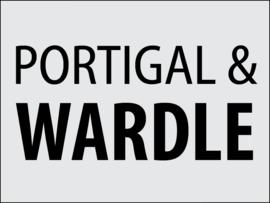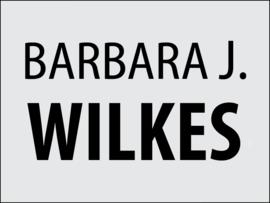Showing 124 results
people and organizations- Corporate body
- Corporate body
- Person
- 1947-2014
- Person
Martin Berman grew up in Winnipeg but moved to Toronto to raise his family. He collected his first postcard on March 15, 1985. His goal was to collect postcards of Winnipeg and rural Manitoba.
- Person
- 1929-1998
Morris Block was born in Winnipeg on December 24, 1929. He was educated in Winnipeg where he earned two undergraduate degrees at the University of Manitoba (Science and Engineering) and graduated at the top of his Civil Engineering class in 1955. In 1958, he started the engineering firm M. Block & Associates. His interests included the history of Winnipeg and Manitoba and he collected a wide variety of materials relating to these two themes.
Shortly after graduation, Morris Block married Clara. They had six children. Morris Block died in December of 1998.
- COWA
- Person
Barbara J. Wilkes worked for the Sovereign Life Assurance Company of Canada in Calgary. The company was incorporated by a special Act of the Parliament of Canada in 1902 and commenced business out of Toronto in 1903. The head office was moved to Winnipeg in February of 1912. Prominent local businessman W. Sanford Evans served as president from 1933 until 1948. In 1957, the company moved into a new purpose-designed head office building on the corner of Smith and Broadway in Winnipeg (287 Broadway). By 1970, the head office was no longer in Winnipeg and the building on Broadway had been sold.
Winnipeg (Man.). Survey, Town Planning and Property Department
- Corporate body
- [?]-[1971?]
Winnipeg (Man.). Special Committee to Investigate Charges regarding Purchase of Motor Trucks
- Corporate body
- 1920
The City of Winnipeg was incorporated in 1873 by a charter granted by the legislature of Manitoba. At incorporation, the City established a committee system of government: while Council was the governing body for the City, it was in committee that civic policies were formed and executed. The initial task for the first and all subsequent Councils was to strike standing committees for the Council year. In addition to standing committees, Council established special committees to investigate and manage various projects, issues and questions placed before the City. Special committees were typically struck by a Council motion that outlined committee composition and responsibilities.
The Special Committee to Investigate Charges regarding Purchase of Motor Trucks was appointed on February 2, 1920 to address allegations made by the Winnipeg Motor Trades Association, Car Section, that tenders to supply vehicles to the City did not receive impartial consideration. The file contains a Resolution by the Winnipeg Motor Trades Association, Car Section, which includes the names of vehicle dealerships and managers. Also included is a statement by J. G. Sullivan, Consulting Engineer, refuting the charge. Sullivan's statement is signed by members of the committee responsible for selecting vehicles for purchase.
Winnipeg (Man.). Special Committee on Social Evil Question
- Corporate body
- 1910
The Special Committee on Social Evil Question was appointed by Council on February 28, 1910 to meet with a similarly named committee of the Moral and Social Reform Council of Manitoba to address prostitution in the area around Rachel and McFarlane Streets in particular. Later in 1910, Council requested the Lieutenant-Governor-in-Council appoint a Commission to investigate charges of graft within the police department regarding trade in liquor and prostitution within a segregated area in the City (Rachel and McFarlane Streets). Judge Robson's report was received by the City in January of 1911. Although Council adopted a motion to have the Special Committee on Social Evil Question "remain a permanent Committee of the City Council for the year 1910", a handwritten note dated January 3, 1912 states "This matter has not been taken up." Committee minutes exist for three meetings in 1910 (March 17, 21 and 22). No file code was assigned to this special committee.
Winnipeg (Man.). Special Committee on Post-War Reconstruction
- Corporate body
- 1942-1948
The City of Winnipeg was incorporated in 1873 by a charter granted by the legislature of Manitoba. At incorporation, the City established a committee system of government: while Council was the governing body for the City, it was in committee that civic policies were formed and executed. The initial task for the first and all subsequent Councils was to strike standing committees for the Council year. In addition to standing committees, Council established special committees to investigate and manage various projects, issues and questions placed before the City. Special committees were typically struck by a Council motion that outlined committee composition and responsibilities. From about 1924 onward, special committees and their associated files were assigned an alpha-numeric code beginning with the letter "A".
The Special Committee on Post-War Reconstruction was established by Council motion on February 16, 1942. It was composed of two aldermen from each of the three wards of the City and was instructed to identify likely projects for post-war work within Winnipeg, draft a plan of action and consult broadly with other public bodies engaged in similar work. The identification and development of municipal projects was linked to a broader national objective of securing employment and stability for those demobilized from the armed forces and from war industries. Among the projects identified were: improvements to Winnipeg General Hospital; improvements to city schools; repairs and renewal of sewer and water systems, bridges, pavement and riverbanks; as well as mention of a new city hall. The committee consulted with other Canadian cities engaged in similar planning and solicited advice and information from the local business community. The file code for this special committee was A49.
Winnipeg (Man.). Special Committee on Arrangement of Committees for Incoming Council
- Corporate body
- 1920-[1922?]
The City of Winnipeg was incorporated in 1873 by a charter granted by the legislature of Manitoba. At incorporation, the City established a committee system of government: while Council was the governing body for the City, it was in committee that civic policies were formed and executed. The initial task for the first and all subsequent Councils was to strike standing committees for the Council year. In addition to standing committees, Council established special committees to investigate and manage various projects, issues and questions placed before the City. Special committees were typically struck by a Council motion that outlined committee composition and responsibilities.
The Special Committee on Arrangement of Committees for Incoming Council was appointed in January of 1920 to consider the arrangement of committees for the incoming council together with any rearrangement of departments that might be necessary. The committee consisted of six aldermen.
Winnipeg (Man.). Special Committee on Amalgamation
- Corporate body
- 1918
The City of Winnipeg was incorporated in 1873 by a charter granted by the legislature of Manitoba. At incorporation, the City established a committee system of government: while Council was the governing body for the City, it was in committee that civic policies were formed and executed. The initial task for the first and all subsequent Councils was to strike standing committees for the Council year. In addition to standing committees, Council established special committees to investigate and manage various projects, issues and questions placed before the City. Special committees were typically struck by a Council motion that outlined committee composition and responsibilities.
The Special Committee on Amalgamation was appointed by Council on August 19, 1918 to "consider and report on the question of adjusting, re-arranging and amalgamating the various departments of City Offices". In order to complete this task, the Committee requested statements from the City's twenty-three administrative departments showing the functions and duties of the department and the organization of staff (including the name, position, salary and responsibilities of each staff member). Statements were not requested for the Fire Department or the Light and Power Department. The Committee's final report was accepted by Council in December of 1918 and referred to the City Solicitor to draft requisite legislation. The Special Committee on Amalgamation had five members and adjourned following submission of its report to Council: Controllers Wallace and Puttee and Aldermen Fowler, Fisher and Vopni.
Winnipeg (Man.). Playgrounds Commission
- Corporate body
- 1908-1919
The first public playground in Winnipeg was opened in 1908 by the Committee on Public Playgrounds for Winnipeg, the members of which had been appointed at a citizens meeting on May 28, 1908: Mrs. J. Dick, Mrs. Dr. Sparling, J. Dyson, J. S. Woodsworth, J. W. McMillan, John Appleton, H. R. Hadcock, E. L. Drewry and H. E. Wilson. This committee solicited private funds for a demonstration project to be operated in conjunction with the Mother's Association through the summer of that year. By the fall of 1908, the Committee on Public Playgrounds for Winnipeg had become the Playgrounds Association of the City of Winnipeg, reflecting a broad trend in North America and their connection with the American Playgrounds Association. In 1909, the Association met with the City of Winnipeg's Board of Control to propose creation of a commission to manage a system of playgrounds for the city. The Board of Control supported the proposal and the Playgrounds Commission was organized in 1909 under By-Law 5557 with an appropriation of $4000. The Playgrounds Commission managed playgrounds until 1919 when its powers were transferred to the Public Parks Board through By-Law 9835.
Winnipeg (Man.). Advisory Traffic Commission
- Corporate body
- 1936-1954
The Advisory Traffic Commission was founded in 1936, with the passing of By-Law No. 14849. This By-Law was repealed in 1954, with the founding of the City of Winnipeg Traffic Commission. The Advisory Traffic Commission acted in an advisory capacity on all matters of traffic and pedestrian regulation in Winnipeg. Members of the Commission were appointed by Council.
Examples of Advisory Traffic Commission business were:
-Forming a Traffic Squad in the police department.
-Pedestrian control, including limiting crossing to intersections and crosswalks.
-Requests to erect stop signs at intersections.
-Implementing and regulating parking meters.
-Implementing parking bans.
-Implementing and regulating traffic signal systems.
-Regulating street cars.
-Widening streets.
-Turning restrictions.
-Loading zones.
- Person
- 1925-2000
Born Daniel Abraham Yanofsky in Poland in 1925, Abe Yanofsky came to Canada as a small child. His family eventually settled in Winnipeg. Yanofsky was a graduate of the University of Manitoba and a Rhodes scholar, and earned a law degree at Oxford. He returned to Winnipeg where he became a successful lawyer and Queen’s Counsel. Yanofsky served as Alderman and Mayor of West Kildonan from 1961 until 1971, then as Councillor on the Unicity Council of the City of Winnipeg from 1972 until 1986. Among his accomplishments in civic politics was construction of the Seven Oaks General Hospital and Wellness Institute in Winnipeg’s north end.
In addition to his legal and political careers, Yanofsky was an exceptional chess player, winning the Canadian Chess Championship eight times. His development as a player began early. By the age of eleven he was recognized as a child prodigy, and represented Canada on second board in the world chess Olympiad in Argentina in 1939. He was named Grand Master in 1964 by the world chess organization, FIDE. Yanofsky was a central figure on the local chess scene, wrote the Free Press chess column for many years and was responsible for bringing the Pan American Chess Championships to Winnipeg in 1974.
Abe Yanofsky was awarded the Order of Canada in 1972. He died March 5, 2000.
Winnipeg (Man.). Special Committee on Organization and Administration of Civic Departments
- Corporate body
- 1923-1926
The City of Winnipeg was incorporated in 1873 by a charter granted by the legislature of Manitoba. At incorporation, the City established a committee system of government: while Council was the governing body for the City, it was in committee that civic policies were formed and executed. The initial task for the first and all subsequent Councils was to strike standing committees for the Council year. In addition to standing committees, Council established special committees to investigate and manage various projects, issues and questions placed before the City. Special committees were typically struck by a Council motion that outlined committee composition and responsibilities.
The Special Committee on Organization and Administration of Civic Departments was appointed by Council in August of 1923 to consider and report on ways and means to improve the organization and administration of civic departments. The committee consisted of seven aldermen and the mayor. Reports to Council were submitted periodically and amendments to several by-laws to facilitate the movement of various functions from one department or branch to another were drafted and passed.













